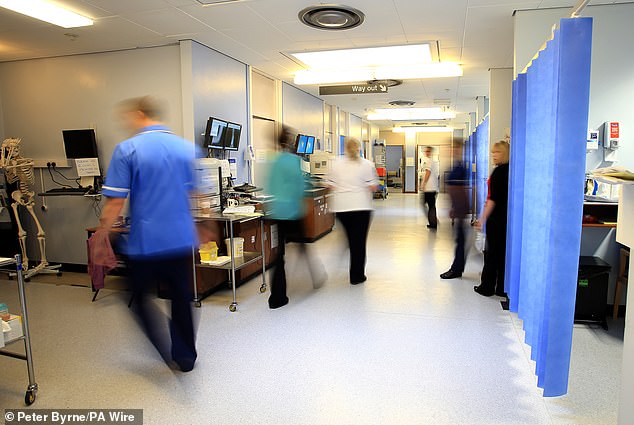More than four in ten NHS patients have seen their health deteriorate while waiting to be admitted to hospital, a damning survey reveals.
The Care Quality Commission said its annual survey of 63,500 people shows long waiting lists are increasingly damaging to the country’s health.
Some 43 percent told the regulator their health had deteriorated while on the list, up from 41 percent the previous year.
Of those who reported a deterioration in their condition, a quarter (25 percent) said it had “got a little worse” and just under a fifth (18 percent) said it had “got a lot worse.”
About 42 percent of respondents who were hospitalized for elective care said they wished they had been admitted sooner, up from 39 percent the previous year.
The CQC said an “imbalance” between patient demand and treatment capacity was causing delays and “putting people at risk”.
More than four in ten NHS patients saw their pain worsen while waiting to be admitted to hospital.

About 42 percent of respondents who were hospitalized for elective care said they wished they had been admitted sooner, up from 39 percent the previous year.
Delays can mean that people may be left in excruciating pain, unable to work and in need of more intensive treatment once they finally enter theatre.
It can also hamper recovery chances.
An independent study by the Health Foundation think tank today shows that patients in the UK face some of the longest waits for hospital care in the developed world.
Health Secretary Wes Streeting has warned that the health service is “broken” and ordered an inquiry into the scale of the problem.
This comes as waiting lists rise to 7.6 million and taxpayers are forced to fund growing welfare benefits as more people take time off work due to illness.
The CQC surveyed 63,500 people who stayed in one of the NHS’s 131 specialist and acute care homes in England for at least one night last November.
The survey has been conducted annually since 2002.
Only 75 percent said they “always” felt included by doctors in conversations about their care, and 82 percent felt they were “always” treated with dignity and respect by hospital staff.
Meanwhile, only 63 percent said they could “always” get a staff member to help them when they needed care.
About 70 percent of patients reported that they “always” received the help they needed with washing and 64 percent “always” received the assistance they needed with eating.
Patients also remained dissatisfied with discharge planning and procedures.
Only 33 percent of respondents said they had been “very” involved in decisions about their discharge, and 44 percent said they knew “definitely” what would happen next with their care after leaving the hospital.
Nicola Wise, director of secondary and specialist healthcare at the CQC, said: “It is disappointing that we have not seen further improvements in patient experience since the survey was last carried out.
‘Overall, satisfaction rates remain much lower than before Covid, and delays in accessing care and poorly coordinated hospital discharge are two clear factors that impact the quality of people’s hospital stay.
“It is also worrying that we have seen an increase in the number of people who feel their health has deteriorated whilst waiting for elective care – further evidence that the current imbalance between patient demand and treatment capacity is putting people at risk.”
Louise Ansari, chief executive of patient watchdog Healthwatch England, said: “The rise in the number of patients saying their health deteriorated while waiting to be admitted to hospital is worrying, especially given the NHS’s efforts to tackle waiting times.
‘The NHS will not reduce waiting times overnight, but more needs to be done to prioritise those most in need and improve the waiting experience.
‘A key aspect of this is providing more regular checks on people’s condition and pain levels and better support for physical and mental health symptoms.’

Health Secretary Wes Streeting (pictured) has warned the health service is “broken” and ordered an inquiry into the scale of the problem.
Commenting on the Health Foundation study, Ruth Thorlby, deputy director of policy at the think tank, said: “These findings show that the UK consistently ranks near the bottom of the table when it comes to people’s experience of healthcare, compared with other high-income countries.
‘The combined effect of the pandemic and below-average spending growth has left the NHS in a fragile state.’
A Department of Health and Social Care spokesman said: ‘The results of this survey confirm what we already know: the NHS is broken, but not defeated.
“Getting the NHS up and running again is our priority, but it will take time.”


